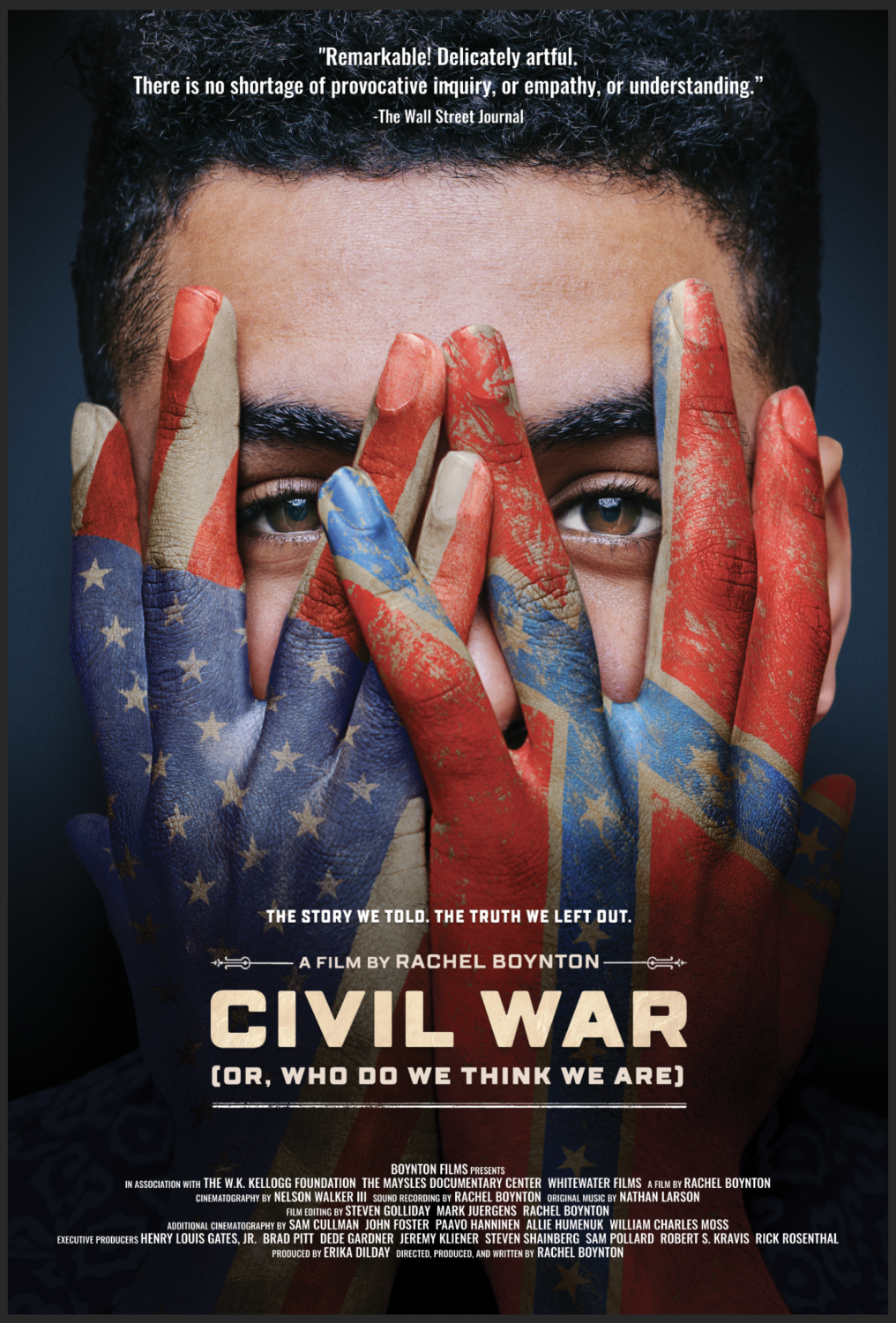Although it is easy to blame Facebook and Twitter for the polarization of America, region, generation, gender, race and politics are often the reason why a single event can occur to people so differently. While social media exacerbates the problem, it isn’t the cause.
An MPRM documentary client, Civil War (or, Who Do We Think We Are), recently in theaters and set to premiere on MSNBC on October 24th, addresses these deeper issues through an exploration of how Americans interpret the Civil War, which is still a divisive topic, and why. It is a multi-faceted portrait of the American psyche, examining how the past continues to haunt us today. It addresses both overt and unconscious bias through those subjects that we still find difficult to talk about today, primarily slavery.
Then as now, it is all about who controls the narrative. For the Civil War, in large part, it was those who lost who wrote the history. To bring the nation together, the war was addressed in terms of mutual valor but not the cause, which is why generations later many still believe the South rebelled against the overreach and power of centralized government and slavery was only incidental to the war. The Confederacy felt they were protecting their land and people from invading armies and the Union was fighting against secession. Some of these same arguments — state rights vs federal government — are still taking place today. It wasn’t until recently that statues of Confederate generals, many of whom held a place of honor in the nation’s Capital, were finally removed and that Mississippi, the last state to have a symbol of the Confederacy in its state flag, finally made a change.
As filmmaker Rachel Boynton takes her cameras into schools across the country, we learn that slavery is a difficult subject for both Black and White students, for some it is the pain of knowing (or not) that their ancestors were enslaved and for others that their families were slave owners. The film also gives voice to those teaching about Black perspective and the role they played in helping to win the war, long missing from the Civil War narrative, which has always been White.
In one Massachusetts community where a group meets regularly to talk about the Civil War and their local regiment, they struggled to respond to questions about the lack of diversity in their group and community despite the nearby communities who were.
Reconstruction was about the best and worst of times, from the passage of the 14th and 15th amendments to the violent repression of the Black vote, from the hopes of enslaved people who ran for office to the backlash that resulted in a century of Jim Crow. It is another period of our history that is told from different perspectives, with consequences that continue to resonate.
As Boynton says, her goal is to help us “become a little less certain of our own self-righteousness, a little less certain of our impulse to pre-judge others according to what we see and asking ourselves which piece of the story we can change.” The film’s goal is also to start conversations about how history is communicated to the next generation.
It is a goal that we should all take very seriously. History can bring us together only if we truly see and understand the interconnections and recognize that hearing only what we want to hear represents a dead end.
